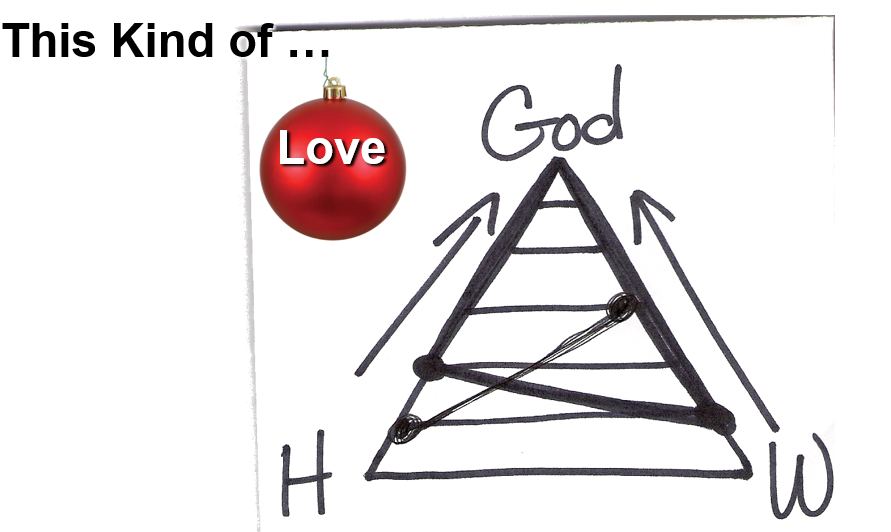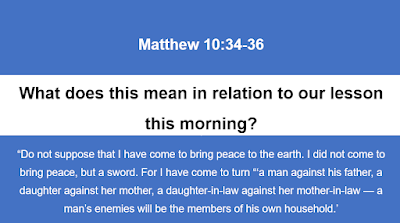The Love of Christ
Romans 5:1-11
Therefore, since we have been justified by
faith, we have peace with God through our Lord Jesus Christ. 2 Through him we
have also obtained access by faith into this grace in which we stand, and we
rejoice in hope of the glory of God. 3 Not only that, but we rejoice in our
sufferings, knowing that suffering produces endurance, 4 and endurance produces
character, and character produces hope, 5 and hope does not put us to shame,
because God’s love has been poured into our hearts through the Holy Spirit who
has been given to us. 6 For while we were still weak, at the right time Christ
died for the ungodly. 7 For one will scarcely die for a righteous person — though
perhaps for a good person one would dare even to die — 8 but God shows his love
for us in that while we were still sinners, Christ died for us. 9 Since,
therefore, we have now been justified by his blood, much more shall we be saved
by him from the wrath of God. 10 For if while we were enemies we were
reconciled to God by the death of his Son, much more, now that we are
reconciled, shall we be saved by his life. 11 More than that, we also rejoice
in God through our Lord Jesus Christ, through whom we have now received
reconciliation.
Discussion Questions
Romans 5:1 "Therefore, since we have
been justified by faith, we have peace with God through our Lord Jesus
Christ."
Question: What does it mean to have peace
with God? How is this different from feelings of personal peace or calmness?
Romans 5:2 “Through him we have also obtained
access by faith into this grace in which we stand, and we rejoice in hope of
the glory of God.”
Question: How does “standing in grace” shape
our understanding of our relationship with God? How does this impact our hope
in daily life?
Romans 5:3-5 “Not only that, but we rejoice
in our sufferings, knowing that suffering produces endurance, and endurance
produces character, and character produces hope.”
Question: Why does Paul encourage believers
to “rejoice in our sufferings”? How have you seen God use trials to strengthen
your faith or character?
Romans 5:6-8 "But God shows his love for
us in that while we were still sinners, Christ died for us."
Question: What does this verse teach us about
the nature of God’s love? Why is it significant that Christ died for us while
we were still sinners?
Romans 5:10-11 "For if while we were
enemies we were reconciled to God by the death of his Son, much more, now that
we are reconciled, shall we be saved by his life."
Question: What does reconciliation mean in
this passage? How does being reconciled to God change the way we live and
interact with others?
The love of God is something that is poured
into every single person who is a Christian. As the love of God pours into our
lives it should overflow into the lives of others. How is God calling you to
display the love of God to other people this season and going into the New Year?
END
Teacher Notes:
Paul Harvey - Christmas Message
Romans 5:1-11
Therefore, since we have been justified by
faith, we have peace with God through our Lord Jesus Christ. 2 Through him we
have also obtained access by faith into this grace in which we stand, and we
rejoice in hope of the glory of God.
3 Not only that, but we rejoice in our
sufferings, knowing that suffering produces endurance, 4 and endurance produces
character, and character produces hope, 5 and hope does not put us to shame,
because God’s love has been poured into our hearts through the Holy Spirit who
has been given to us. 6 For while we were still weak, at the right time Christ
died for the ungodly. 7 For one will scarcely die for a righteous person — though
perhaps for a good person one would dare even to die — 8 but God shows his love
for us in that while we were still sinners, Christ died for us.
9 Since, therefore, we have now been
justified by his blood, much more shall we be saved by him from the wrath of
God. 10 For if while we were enemies we were reconciled to God by the death of
his Son, much more, now that we are reconciled, shall we be saved by his life. 11
More than that, we also rejoice in God through our Lord Jesus Christ, through
whom we have now received reconciliation.
Discussion Questions
Romans 5:1 "Therefore, since we have
been justified by faith, we have peace with God through our Lord Jesus
Christ."
Question: What does it mean to have peace
with God?
How is this different from feelings of
personal peace or calmness?
Peace with God is not merely a feeling; it’s
an objective reality of restored relationship.
We stand in grace — permanently secure and
welcomed into God’s favor.
Quote: “The peace we enjoy is not a truce but
an abiding peace, resting upon the justice of God and the finished work
of Christ.” – Charles Spurgeon
We now have peace with God, which may differ
from peaceful feelings such as calmness and tranquility. Peace with God means
that we have been reconciled with Him. There is no more hostility between us,
no sin blocking our relationship with Him. Peace with God is possible only
because Jesus paid the price for our sins through His death on the cross. Vs 1
Romans 5:2 “Through Him we have also obtained
access by faith into this grace in which we stand, and we rejoice in hope of
the glory of God.”
Question: How does “standing in grace”
shape our understanding of our relationship with God?
Paul states that, as believers, we now stand in a place of highest privilege (“this grace in which we now stand”). Not
only has God declared us not guilty; He has drawn us close to Himself. Instead
of being enemies, we have become His friends – in fact His own children (John
15:15; Galatians 4:5). Vs 2
Romans 5:3-5 “Not only that, but we rejoice
in our sufferings, knowing that suffering produces endurance, and endurance
produces character, and character produces hope.”
Question: Why does Paul encourage
believers to “rejoice in our sufferings”?
How have you seen God use trials to
strengthen your faith or character?
God’s love has been “poured into our hearts”
through the Holy Spirit. Even in suffering, His love is a firm anchor.
Why do you think Paul links suffering to
hope? How have you seen God use trials to grow you?
As Paul clearly states in 1 Corinthians
13:13, faith, hope, and love are at heart of the Christian life. Our
relationship with God begins with faith, which helps us realize that we are delivered
from our past by Christ’s death. Hope grows as we learn all that God has in
mind for us; it gives us the promise of the future. And God’s love fills our
lives and gives us the ability to reach out to others. Vs 2-5
Romans 5:6-8 "But God shows his love for
us in that while we were still sinners, Christ died for us."
Question: What does this verse teach us
about the nature of God’s love?
Why is it significant that Christ died for us
while we were still sinners?
All three members of the Trinity are involved
in salvation. The Father loved us so much that He sent His Son to bridge the
gap between us (John 3:16). The Father and the Son send the Holy Spirit to fill
our lives with love and to enable us to live by His power. With all this loving
care, how can we do less than serve Him completely! Vs 5-6
How does this truth challenge a
performance-based view of God’s love?
We were weak and helpless because we could do
nothing on our own to save ourselves. Someone had to come and rescue us. Not
only did Christ come at a good time in history; He came at exactly the right
time – according to God’s own schedule. God controls all history, and He
controlled the timing, methods, and results of Jesus’ death. Vs 6
While we were still sinners – these are amazing words. God sent Jesus
Christ to die for us, not because we were good enough, but because He loved us.
Whenever you feel uncertain about God’s love for you, remember that He loved
you even before you turned to Him. If God loved you when you were a rebel,
He can surely strengthen you, now that you love Him in return. Vs 8
Romans 5:10-11 "For if while we were
enemies we were reconciled to God by the death of his Son, much more, now that
we are reconciled, shall we be saved by his life."
Question: How does being reconciled to God
change the way we live and interact with others?
Reconciliation means a restored relationship —
believers are no longer enemies but beloved children.
“If Christ saved us while we were enemies,
how much more will His risen life sustain us now?”
How does knowing you are reconciled and
secure in Christ’s life give you confidence today?
The love that caused Christ to die is the
same love that sends the Holy Spirit to live in us and guide us every day. The
power that raised Christ from the dead is the same power that saved you and is
available to you in your daily life. Be assured that having begun a life with
Christ, you have a reserve of power and love to call on each day, for help to
meet every challenge or trial. You can pray for God’s power and love as you
need it. Vs 9-10
God is holy, and He will not be associated
with sin. All people are sinful and so they are separated from God. In
addition, all sin deserves punishment, instead of punishing us with the death
we deserve, however, Christ took our sins upon himself and took our punishment
by dying on the cross. Now we can “rejoice in God.” Through faith in Christ’s
work, we become close to God (reconciled) rather than being enemies and
outcasts. Vs 11
Closing Video - Can't Post































































